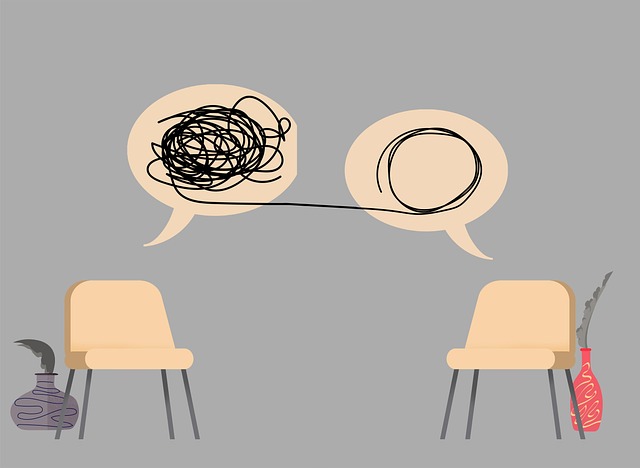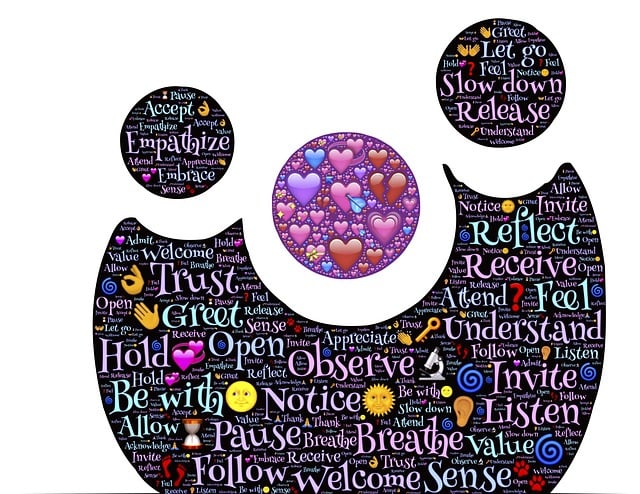CBT (Cognitive Behavioral Therapy) is a goal-oriented psychotherapy approach that focuses on identifying and changing negative thought patterns and behaviors, empowering individuals to take control of their well-being. Using evidence-based techniques like SMART goal setting, cognitive restructuring, and behavioral activation, CBT combines cognitive and behavioral techniques for active client participation. This therapy enhances coping skills, fosters resilience, and shows effectiveness in treating various mental health issues, including anxiety disorders and depression. Beyond formal therapy, clients develop skills leading to improved self-esteem, decision-making, and personal growth.
“Unleash your potential with Goal-Oriented Psychotherapy (GOP), a powerful approach revolutionizing mental health care. This article guides you through the transformative journey of GOP, focusing on Cognitive Behavioral Therapy (CBT) foundations. We explore goal setting in therapy, action planning for success, and overcoming challenges.
Learn how GOP measures progress, integrates coping skills, and delivers real-world results through case studies. By the end, understand why this evidence-based method is a game-changer, offering not just short-term relief but lasting well-being.”
Understanding Goal-Oriented Psychotherapy: A Brief Overview

Goal-oriented psychotherapy, also known as problem-solving therapy or cognitive behavioural therapy (CBT), is a structured approach designed to help individuals achieve specific and meaningful goals. This therapeutic method focuses on the present and future, empowering clients to identify and work towards personal objectives. CBT psychotherapists collaborate with clients to set realistic, measurable targets, breaking down larger aspirations into manageable tasks.
By combining cognitive and behavioural techniques, this psychotherapy helps individuals challenge negative thought patterns, modify behaviour, and develop effective coping strategies. It encourages active participation, self-reflection, and homework assignments to reinforce progress between sessions. This approach has proven particularly effective for a range of common mental health issues, fostering resilience and enabling clients to take control of their well-being.
The Core Principles of CBT Therapy

Cognitive Behavioral Therapy (CBT) is a goal-oriented psychotherapy approach that focuses on identifying and changing negative thought patterns and behaviors. Its core principles revolve around the belief that our thoughts, feelings, and actions are interconnected, and by modifying these thought processes, individuals can achieve positive changes in their lives. CBT therapists work collaboratively with clients to set specific, measurable goals and develop tailored strategies for overcoming challenges.
This therapy type emphasizes the present and future rather than dwelling on past experiences. It encourages active participation from the client, who learns to challenge cognitive distortions, engage in problem-solving skills, and acquire coping mechanisms. Through structured sessions, CBT helps individuals gain insights into their automatic negative thoughts, recognize unhelpful behaviors, and develop more adaptive responses, ultimately fostering a greater sense of control over their emotional well-being.
Identifying Personal Goals in Therapeutic Settings

In goal-oriented psychotherapy, one of the first steps in the therapeutic process is helping clients identify their personal goals. This involves a collaborative effort between the therapist and the client, where they work together to define what the client wants to achieve during and after therapy. Using evidence-based techniques like Cognitive Behavioral Therapy (CBT), therapists aid clients in setting specific, measurable, achievable, relevant, and time-bound (SMART) goals. This approach ensures that the goals are realistic and attainable, providing a clear direction for the therapeutic journey.
By setting these personal goals, clients gain a sense of purpose and ownership over their treatment. CBT therapy encourages clients to confront and change negative thought patterns and behaviors, aligning these changes with their established objectives. This integration between therapy techniques and client aspirations fosters motivation and commitment, increasing the likelihood of successful outcomes.
Creating Action Plans: Strategies for Success

In goal-oriented psychotherapy, one of the most effective tools for fostering progress and achieving desired outcomes is the creation of action plans. These plans, often tailored using Cognitive Behavioral Therapy (CBT) techniques, provide clients with a clear roadmap to reach their goals. Psychotherapists work collaboratively with clients to set specific, measurable, achievable, relevant, and time-bound (SMART) objectives, breaking them down into manageable steps. This structured approach ensures that clients are not only motivated but also equipped with the strategies needed to overcome challenges along the way.
Action plans typically involve setting short-term milestones, identifying potential obstacles, and devising solutions or coping mechanisms. Regularly reviewing and adjusting these plans is crucial for success. Through this process, clients gain a sense of ownership over their journey, enhancing their commitment and accountability. CBT’s emphasis on self-reflection and problem-solving skills further empowers individuals to manage their mental health effectively, even after the formal therapeutic process comes to an end.
Overcoming Barriers and Challenges During Treatment

Overcoming barriers and challenges is a significant aspect of goal-oriented psychotherapy, especially when employing techniques like Cognitive Behavioral Therapy (CBT). During treatment, clients often face various obstacles that can hinder progress. These might include resistance to change, where individuals struggle to acknowledge or accept their current situation or are reluctant to adopt new strategies. Another common challenge is the recurrence of old patterns and behaviors, which can test the patient’s commitment to their therapeutic journey.
Therapists play a crucial role in helping clients navigate these hurdles. They encourage open communication to understand the underlying causes of resistance. By fostering a collaborative environment, therapists guide patients to identify and challenge negative thought patterns and beliefs, promoting a more adaptive mindset. CBT techniques, such as cognitive restructuring and behavioral activation, empower individuals to replace unhelpful behaviors with healthier alternatives, ultimately facilitating personal growth and goal achievement.
Measuring Progress: Evaluating Growth and Achievement

Measuring progress is a vital aspect of goal-oriented psychotherapy, providing therapists with valuable insights into their clients’ growth and achievement. In Cognitive Behavioral Therapy (CBT), this evaluation process involves tracking specific goals and identifying changes in thought patterns, behaviors, and emotional responses. Therapists use structured assessments and regular check-ins to quantify progress, ensuring that interventions are effective and tailored to the client’s needs.
By setting measurable objectives at the beginning of therapy, CBT allows for a clear pathway to success. Through ongoing monitoring, therapists can adapt strategies, celebrate milestones, and address any setbacks promptly. This data-driven approach fosters a collaborative relationship between therapist and client, promoting accountability and empowering individuals to take ownership of their personal growth journey.
Integrating Coping Skills for Long-Term Well-being

In goal-oriented psychotherapy, a significant aspect of treatment involves equipping individuals with effective coping skills to manage challenges and promote long-term well-being. Cognitive Behavioral Therapy (CBT) is a popular approach that focuses on identifying and modifying negative thought patterns and behaviors, thereby enhancing one’s ability to cope with stress and adversity. By learning and practicing specific CBT techniques, clients can develop resilience and adaptive strategies to navigate life’s difficulties.
These coping skills extend beyond the therapeutic setting, enabling individuals to maintain their mental health and emotional equilibrium in various contexts. Through structured therapy sessions, psychotherapists guide patients to recognize triggers, challenge distorted thinking, and adopt healthier behaviors. This process empowers them to face future challenges head-on, fostering a sense of control and overall psychological resilience.
Real-Life Applications: Case Studies of CBT Success

In real-life settings, Cognitive Behavioral Therapy (CBT) has proven to be a highly effective goal-oriented psychotherapy approach. Case studies illustrate its success in treating various mental health conditions. For instance, CBT has shown remarkable results in helping individuals manage anxiety disorders by identifying and changing negative thought patterns and behaviors. Through structured sessions, patients learn coping strategies to confront their fears and anxieties, leading to improved quality of life.
Another compelling application is seen in depression treatment. CBT aids patients in challenging distorted thinking and adopting healthier cognitive processes. This not only alleviates depressive symptoms but also empowers individuals to set and achieve personal goals, fostering a sense of purpose and well-being. These case studies demonstrate CBT’s versatility and its ability to bring about positive changes in people’s lives, making it a valuable tool for psychotherapists worldwide.
Conclusion: The Impact of Goal-Oriented Psychotherapy

Goal-oriented psychotherapy, including approaches like Cognitive Behavioral Therapy (CBT), has proven to be a powerful tool in transforming lives. By focusing on specific, achievable goals, this therapeutic approach empowers individuals to take control of their mental health and overall well-being. CBT, in particular, equips clients with valuable coping mechanisms and problem-solving skills, enabling them to confront and overcome challenges that may have seemed insurmountable before.
The impact of such goal-driven practices extends beyond the therapy room. Clients often experience improved self-esteem, enhanced decision-making abilities, and increased resilience as they work towards their objectives. This structured yet flexible framework encourages individuals to embrace change, fostering personal growth and a deeper understanding of themselves. As a result, many find themselves better equipped to navigate life’s twists and turns with renewed confidence and a sense of purpose.
